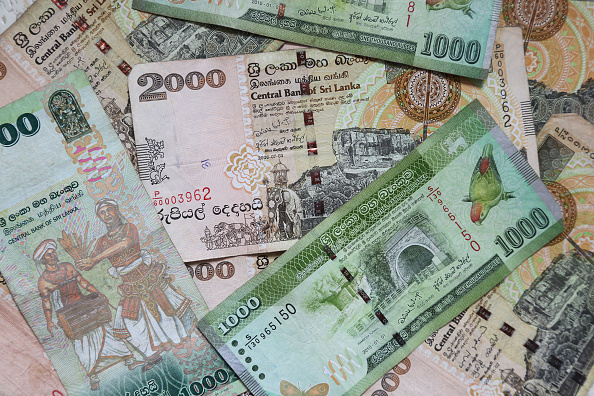
By: LekshmiSajeev
The Sri Lankan rupee fell for an eighth straight session on Monday (6) to a near six-week low on dollar demand from banks, a day after clashes between two sectarian groups dented sentiment.
Stocks dropped to their lowest close in about five-and-a-half years.
Sri Lanka police arrested two men after a personal feud led to clashes between two sectarian groups in a beachside resort north of the capital, the site of one of the deadliest Easter Sunday suicide bombings, as schools reopened to near-empty classes.
The rupee fell 0.23 per cent to 177.55/75 per dollar from Friday’s close of 177.15/60, market sources said.
Analysts fear it could weaken further due to outflows from stocks and government securities.
The island’s currency lost one per cent last week, but is up three per cent this year as exporters converted dollars after investor confidence stabilised following the repayment of a $1 billion sovereign bond in mid-January.
The rupee dropped 16 per cent in 2018, and was one of the worst-performing currencies in Asia due to heavy foreign outflows.
Foreign investors sold a net 3.3 billion rupees worth of government securities in the week ended April 30, extending the net foreign outflow to 10 billion rupees from the securities so far this year, the latest central bank data showed.
The benchmark stock index dipped one per cent on Monday to 5,386.27, its lowest close since Dec. 6, 2012.
Turnover was 441.3 million rupees (£1.9m), lower than this year’s daily average of 578.5 million rupees. Last year’s daily average was 834m rupees.
Foreign investors sold a net 75.2m rupees worth of shares on Monday, extending the net foreign outflow to 4.45bn rupees worth of equities so far this year.
The latest instability follows Sri Lanka’s plunge into political turmoil in October last year, when president Maithripala Sirisena abruptly removed prime minister Ranil Wickremesinghe and then dissolved parliament. A court later ruled the move unconstitutional, and Wickremesinghe was reinstalled as premier.
Investor sentiment took a big hit as a result of the 51-day political crisis, leading to credit rating downgrades and an outflow of foreign funds from government securities.
